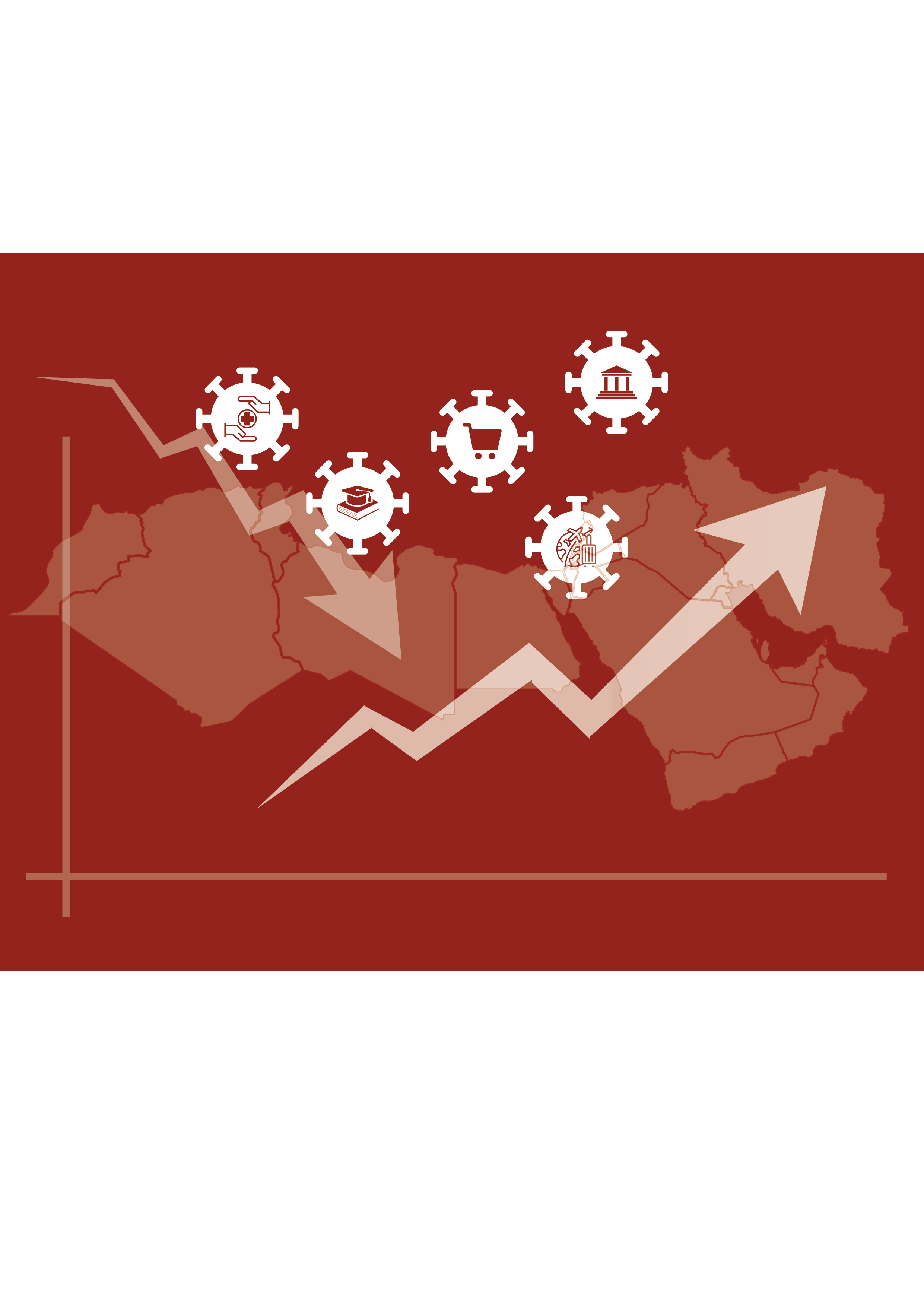COVID-19 has forced changes to virtually every aspect of economic and non-economic life, from the critical to the mundane. Overburdened healthcare systems around the world have scrambled to build makeshift field hospitals to treat patients, whilst schools have struggled to provide online instruction and in-person business exchanges have all but ground to a halt.
Policymakers around the world have implemented various measures to tackle the spread of the virus, including lockdowns and social distancing. In response to the socio-economic fallout of COVID-19, some governments in the MENA region have leveraged technology to ensure that critical social services remain available, and that businesses are able to operate despite increasing uncertainty. However, not all MENA countries were technologically equipped to handle the crisis. The pandemic presents a window of opportunity for MENA governments to reassess their digital readiness and drive changes that will better equip them to create economic and social opportunities, mitigate risks, and minimise socio-economic disruptions during future crises.
This report by the Economist Intelligence Unit examines how technological tools have been applied in MENA during the pandemic, as well as key obstacles to future technological adoption in the region. It assesses areas where new or revised policies based on international best practices could catalyse the MENA region’s use of advanced technologies to bolster economic resilience. In particular, an analysis of MENA’s current technology ecosystem highlights the need for concerted policy changes, including:
1. Unfettered, equitable access to high-speed internet, which is the basic building block of preparedness, enabling remote learning, e-commerce, business continuity and more sophisticated and safer healthcare services;
2. The adoption of critical life-saving technologies, such as contact tracing applications and electronic medical records. These require a robust set of data security, transfer and privacy laws and regulations, which must be enforceable, credible and trusted by the public to be in its best interest;
3. The elevation of educational standards to ensure that MENA’s current and future workforce is adequately equipped with the hard and soft skills that will enable them to participate in a high-tech economy;
4. The promotion of private participation, regional startups and digital entrepreneurs through the simplification of business licensing procedures, and;
5. Accessible and interoperable legal systems, designed through a participatory process, with key elements consistent across the region, that protect user data as the region increasingly iterates new uses for Artificial Intelligence (AI), cloud computing and advanced data analytics.
Although countries in the MENA region fall on a wide spectrum of technological readiness, a commitment to inclusive and strong economic growth requires that each country prioritises these objectives in its national growth and economic recovery agenda. Many MENA leaders have already started implementing policy initiatives to build their technology ecosystem, and they must now continue to champion these advances in resilience to help safeguard the vast interconnected global population.





